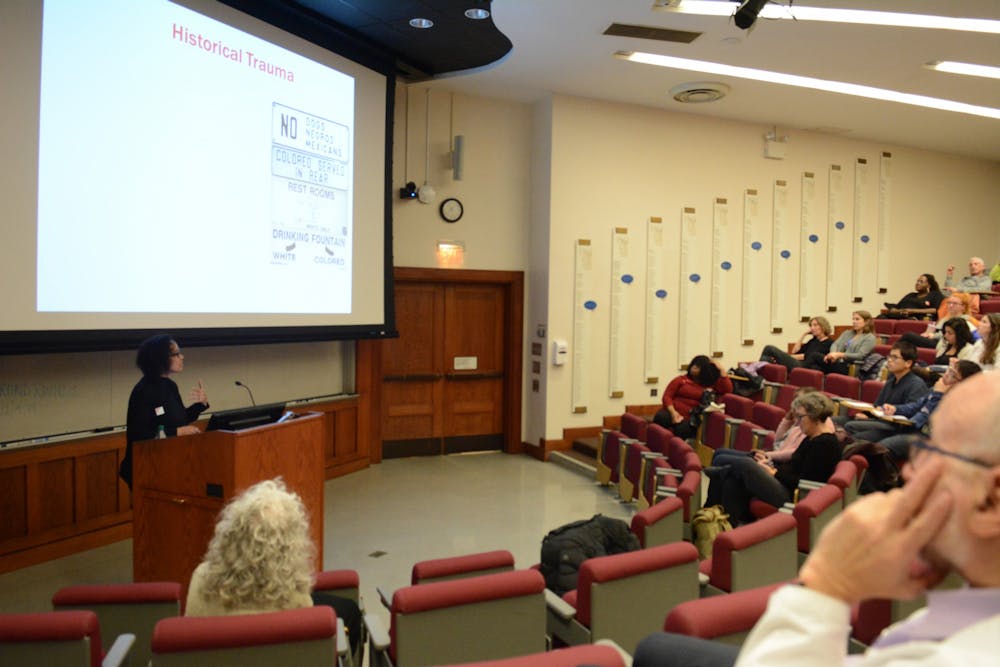As part of Penn’s awareness initiatives for World AIDS Day, an invited researcher gave a talk about bias in the medical field.
During her speech on Thursday, Senior Staff Scientist at the Fred Hutchinson Cancer Research Center and Clinical Assistant Professor at the University of Washington Michele Andrasik spoke about implicit biases, race-based science, historical traumas, and microaggressions that occur across the nation. The Office of Affirmative Action and Equal Opportunity Programs sponsored the event.
Andrasik began her speech by asserting that implicit biases have a larger effect on human actions than most people believe.
“The reason why the implicit biases are so important to understand is that, in a longitudinal study, we found that implicit biases predict our behaviors much more so than the explicit biases,” Andrasik said. “In many more cases, they are much more informative about the way you see the world, the way you feel, and the way you behave in a society.”
Andrasik pointed out that implicit biases are not influenced by social desirability bias, which pushes people to behave in certain ways with the hope that others will view them more favorably as a result.

Senior Staff Scientist at the Fred Hutchinson Cancer Research Center and Clinical Assistant Professor at the University of Washington Michele Andrasik
“If you go through a pen-and-paper test and [are asked] how you feel about the transgender community, your response is going to be driven in some way by how you want me to see you as a human being,” Andrasik said. “However, our implicit biases are not impacted by this effect.”
Andrasik then discussed racial implicit biases using data from the Implicit Association Test, during which subjects are given pictures of white and black people's faces to be associated with positive and negative adjectives.
“What we find is people have a better time associating black faces with negative words and white faces with positive words,” she said.
Andrasik said these implicit biases have played a role in the racially differentiated medical treatments that take place today in society.

Andrasik linked these implicit biases to public perception of global health epidemics, such as the AIDS crisis, during which many blamed the disease on the perceived promiscuity of gay men.
“We see, today, the differential prescription of pain medication. We see differential treatment in referrals in clinical trials,” she said. “And this is all along racial lines — we don’t honestly look enough at differences in health care along gender and sexual minority status to really say.”
Andrasik linked these implicit biases to public perception of global health epidemics, such as the AIDS crisis, during which many blamed the disease on the perceived promiscuity of gay men.
“Had this been a disease that was more easily spread by a different method, we would have seen other sections of the population with higher epidemics of HIV, and yet we focused on what the gay men were doing wrong, going back to the foundation of blaming the victims,” Andrasik said.
Third-year Public Health master's student Juliette Rando, who attended the event, said she appreciated the cohesive summary Andrasik gave of historical oppression and biases.
“It was incredible and I only wished more people [had] come,” Rando said. “I think events like this [are] already self-selective for people that are aware of this issue.”









